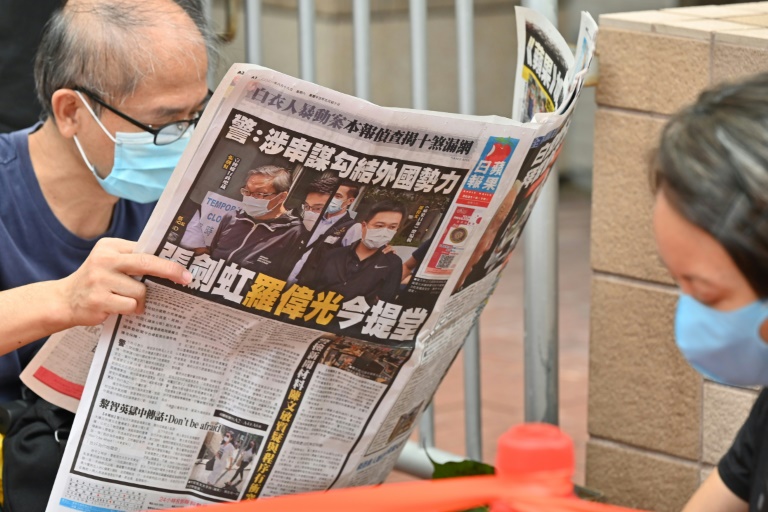Hong Kong’s pro-democracy Apple Daily newspaper warned Monday it is unable to pay staff and is at imminent risk of closure after the government froze the company’s assets using a sweeping new national security law.
Apple Daily has long been a thorn in Beijing’s side, with unapologetic support for the city’s pro-democracy movement and caustic criticism of China’s authoritarian leaders.
Its owner Jimmy Lai is in jail and was among the first to be charged under the security law after its imposition last year. Its chief editor and CEO have been detained and its finances frozen.
Mark Simon, an aide to Lai, said the freeze order by the city’s security chief last week had crippled the newspaper’s ability to do business.
“Our problem at Apple Daily is not that we don’t have funds, we have $50 million dollars in the bank,” he told CNN.
“Our problem is the Secretary of Security and the police will not let us pay our reporters, they will not let us pay our staff, and they will not let us pay our vendors. They have locked up our accounts.”
Lai, 73, is in prison for attending democracy protests in 2019. He faces a life sentence if convicted of national security crimes.
Last Thursday, more than 500 police officers raided the paper’s newsroom and arrested five executives over a series of articles that police said called for international sanctions.
Two of those executives — chief editor Ryan Law and CEO Cheung Kim-hung — have been charged with “colluding” with foreign forces to undermine China’s national security and were remanded into custody over the weekend.
The operation was the first time political views and opinions published by a Hong Kong media outlet have triggered the security law.
But it is the use of the law’s powerful financial freezing tools that looks set to permanently put Apple Daily out of commission.
– Security crackdown –
The law, written in Beijing and imposed on Hong Kong last June, allows authorities to freeze assets of any individual or company in the international business hub that is deemed to be a security threat.
It does not require a court order.
Last month, Lai’s personal assets in Hong Kong and his media company shares were frozen.
Then on Thursday, Secretary for Security John Lee said a further HK$18 million (US$2.3 million) of Apple Daily’s company assets had now been blocked.
“These are all orders from basically the Secretary of Security, we are facing a security agency we are not facing courts,” Simon told CNN.
Simon is himself wanted by Hong Kong police on national security charges but left the city last year and has since relocated to the United States.
In its own reporting over the weekend, Apple Daily said it was planning to ask Lee to unfreeze some money so it can pay some 700 employees.
If the application is unsuccessful, they plan to go to court, the paper added.










